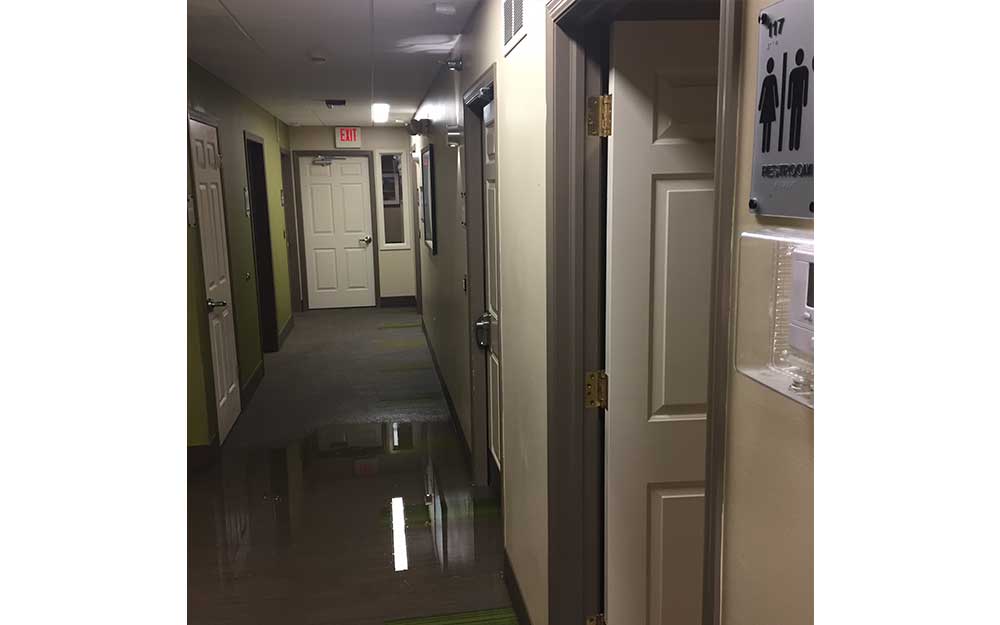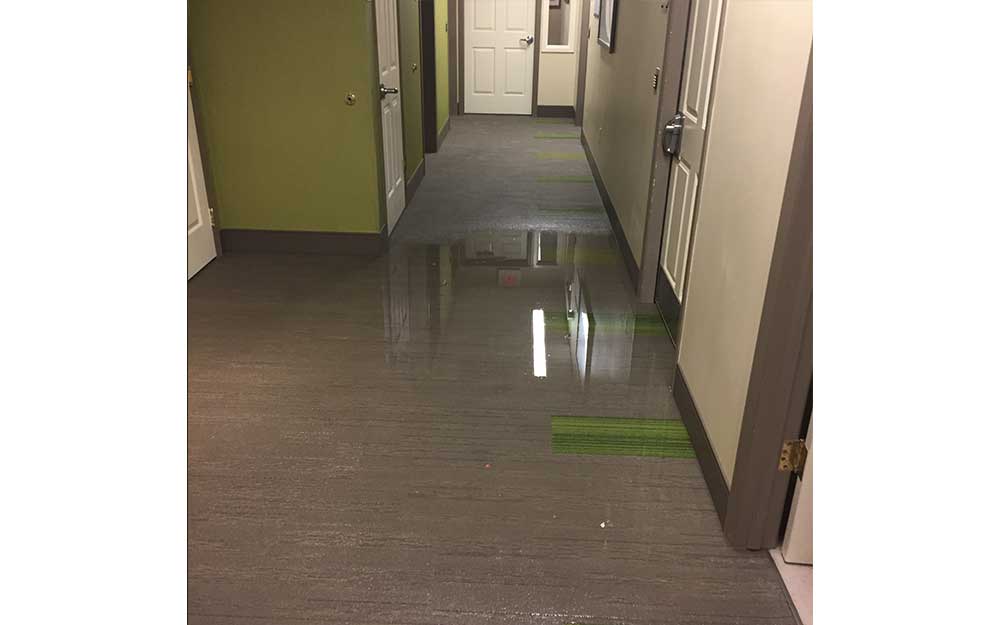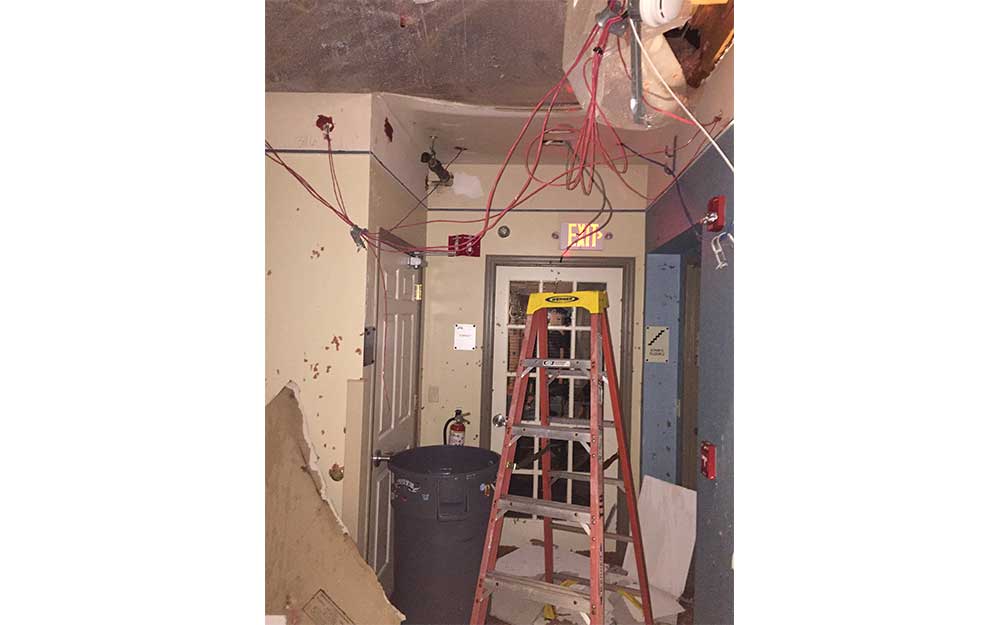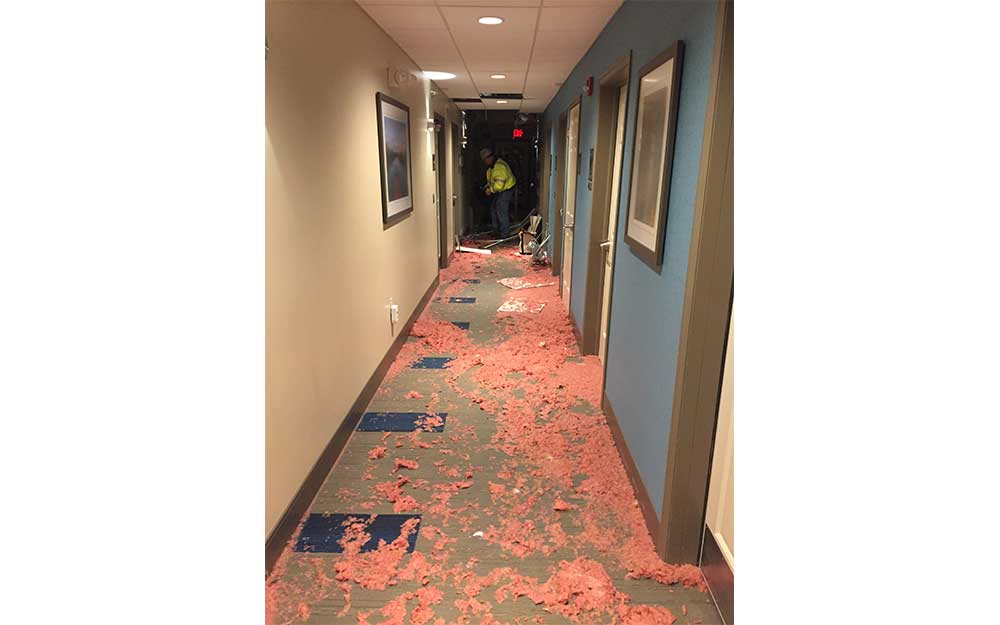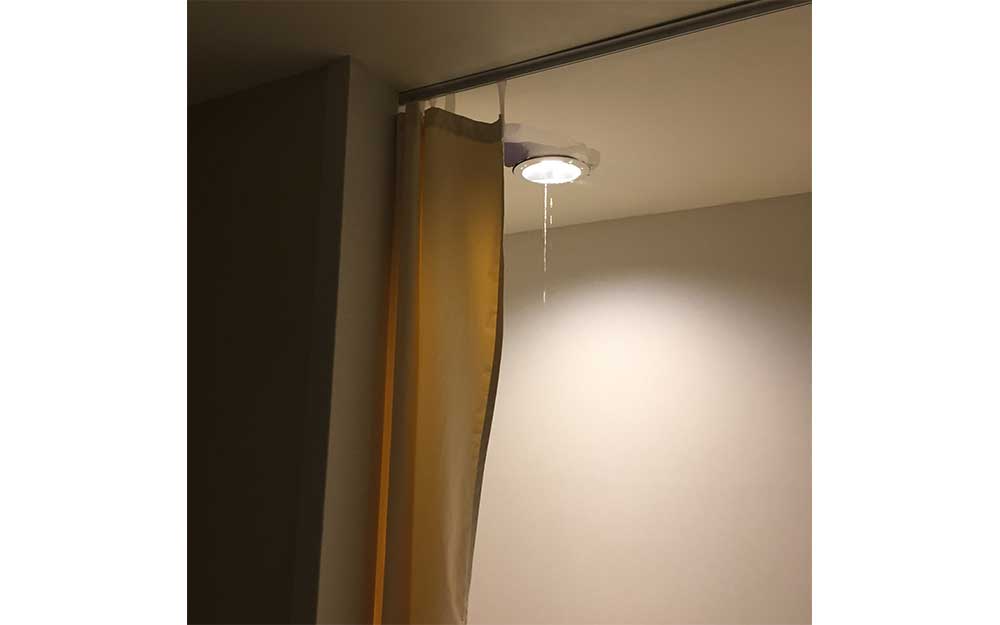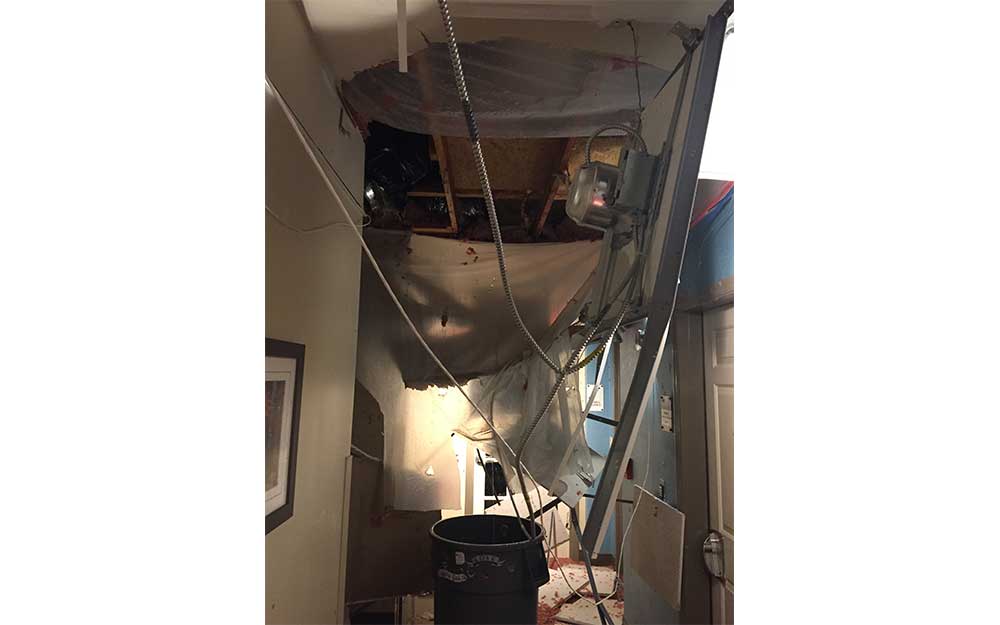
Oconomowoc FOCUS leaders are incredibly grateful for team, help from everyone
03/21/18 02:21:pmWater gushed from the sprinkler system along the residential wings on the second floor of the Charles E. Kubly FOCUS Center, making its way down to the first floor and then the lower level. A pipe had burst in the chill, late afternoon on New Year’s Day.
This will just be temporary—that was the initial reaction from Natalie Scanlon, PhD, behavior specialist and clinical supervisor, and Andy Hayes, clinical services manager, when they first learned about flooding and water damage at the FOCUS Center.
“I told myself it wasn’t that bad until I saw it,” Andy says. “The ceiling was down on the second floor and there were wires; it was very concerning. I thought it didn’t look good, but I kept telling myself it would be fine.”
A full evaluation over the next few days revealed just how much damage was done. Drywall, carpet, ceiling, walls—all needed to be replaced. The FOCUS program was able to move back on February 15, 45 days after they evacuated the building. Their return was actually ahead of schedule, but the journey and effort of keeping the program going was arduous.
Where do we go?
The Center followed the normal evacuation procedure and clustered outside the building. It was four degrees that evening, with most residents coatless due to the abrupt departure. After they were ushered inside the main cafeteria for dinner, a new problem needed addressing—the question of where the group would go now.
The majority of residents were sent over to the Staybridge Suites hotel, after some quick thinking and negotiations between Administration and the hotel management. Andy, the maintenance team, the drivers, and a few others—Patricia Montney, Jessica Garcia, and Eddie Tomaich—ended up pulling an all-nighter to deliver the residents’ belongings that were trapped in the FOCUS building.
Safety became the next concern that needed to be addressed. The FOCUS building was specifically set up as a residential treatment center that could ensure the wellbeing of residents. Staybridge Suites is an extended stay hotel. Safety proofing the rooms was a more daunting task due to its extra amenities.
“A lot was done structurally to make the rooms safe,” Natalie says. “Things like shower rods, cords, and kitchenette and steak knives had to be removed. Andy did a lot of work with the hotel staff to make sure everyone was safe.”
“They got it too,” Andy adds. “They just understood the gravity of it and always responded ‘if you need this out, we’ll get it out.’”
The hotel’s general manager was equally understanding when it came to patient privacy. Within just a few weeks, Rogers had the entire wing on the first and second floor, which Natalie and Andy even set up to mimic the room arrangements at FOCUS by recreating the locations for patient rooms, residential counselor and nursing offices, and community day rooms.
Practice what you preach
If there’s a silver lining to what happened at FOCUS, it’s the opportunity that the staff had to observe how a real crisis affected the residents there and the chance for them to showcase the same coping skills that they discuss with residents on a daily basis.
“We were afforded a unique opportunity to go through a stressor with residents,” Natalie says. “As not ideal as that might be, and it came with treatment difficulties, how often do staff and residents go through the same thing and are challenged to cope with it together?”
Not being able to make use of the FOCUS building was undoubtedly an inconvenience, but they found ways to integrate it into treatment for some.
“We talked with a couple of residents about the idea of moving back to FOCUS before they were discharged, so they could deal with the additional challenge with their new CBT skills, emotional regulation skills, and coping skills.”
The residents agreed to this plan, which ended up going well for them, Natalie says.
It takes a village
The FOCUS staff undoubtedly faced extra stress during this time. Shift changes, overtime, and extra duties. Residential counselors did a lot to help manage safety in the hotel, behavioral specialists and therapists adapted their programming to a different building, and the registered nurses at FOCUS had to set up med operations at the hotel, according to Andy. Everyone based at the main campus also had to adapt—from dietary integrating 30 more meals per day into their dining plan, to all staff rescheduling meetings in the conference rooms that were commandeered by the Focus Residents for group rooms.
“We shared a common challenge and worked through it together,” he says. “We all had to lean on each other at different moments.”
Now that FOCUS is moved back in and settled, Andy has given a lot of thought to how to best thank everyone. He has written a number of thank you notes, but says he owes gratitude to the entirety of the Oconomowoc team.
“Everyone in Oconomowoc was incredibly supportive,” he says.



